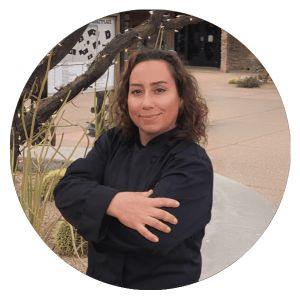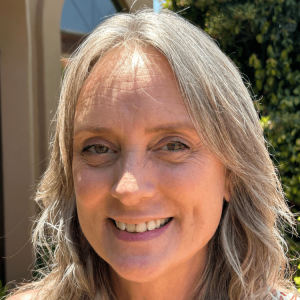






Anew Treatment Center
Verified Center
This provider's information has been quality-checked by Recovery.com's Research Team for accuracy and completeness, including center verification through appropriate third-party organizations.
Treatment Focus
This center treats mental health conditions and co-occurring substance use. You receive collaborative, individualized treatment that addresses both issues for whole-person healing.
Primary Level of Care
Offering intensive care with 24/7 monitoring, residential treatment is typically 30 days and can cover multiple levels of care. Length can range from 14 to 90 days typically.
Treatment Focus
This center treats mental health conditions and co-occurring substance use. You receive collaborative, individualized treatment that addresses both issues for whole-person healing.
Primary Level of Care
Offering intensive care with 24/7 monitoring, residential treatment is typically 30 days and can cover multiple levels of care. Length can range from 14 to 90 days typically.
Private Pay
You pay directly for treatment out of pocket. This approach can offer enhanced privacy and flexibility, without involving insurance. Exact costs vary based on program and length of stay. Contact the center for specific details.
Anew Treatment Center
Anew Treatment Center
About Anew Treatment Center
For over 25 years, Anew Treatment Center has helped thousands of individuals and their families rediscover who they are, renew their hope, and create a meaningful life. They offer multiple levels of care for long-term, complex psychiatric disorders like schizophrenia, bipolar disorder, anxiety, depression, trauma, and co-occurring substance use. Situated in picturesque Scottsdale, Anew hosts its clients in a luxurious center specializing in a therapeutic community-based approach. They also offer transitional living and outpatient care.
Heartfelt Care for Each Stage of Recovery
The Anew team has carefully designed a flexible, yet structured and stage-based model of care to support clients from the beginning phases of treatment all the way through to the transition into post-treatment life. With the help of evidence-based therapies like somatic therapy, narrative therapy, trauma-informed perspectives, and milieu therapy, clients learn healthy coping skills in addition to the daily living skills necessary for maintainable and lasting change.
Community- and Family-Focused Services
Anew’s treatment services are built on the cornerstones of community, reciprocal support, empowerment, and hope. They provide an immersive experience that creates space to learn about oneself, change disruptive patterns, practice new interpersonal skills, and ultimately develop healthy, safe, and lasting relationships. Family involvement is viewed as critical to the recovery process as are alternative therapies like art therapy, equine therapy, and sound therapy.
A Home-Like Environment
Anew Treatment Center is anything but a sterile, hospital environment. Instead, their 10-bed home is welcoming and well-furnished with comfortable couches, fireplaces, and spacious living areas. Outside, patients can soak in the Arizona sun, lounge in the shade, or take a swim in the large pool. Residential clients stay in private or shared rooms, and enjoy chef-prepared meals that can accommodate dietary restrictions like gluten-free, halal, kosher, vegan, and vegetarian diets. Anew offers quarterly excursions for adventure therapy, as well as outings to see movies and visit museums. They also provide on-site aftercare, alumni events, discharge planning, and family follow-up counseling for the continued recovery journey.

Highlights from the Center
Highlights
These highlights are provided by and paid for by the center.
1-on-1 Counseling
Tech Friendly
Trauma Treatment
Center Overview
Treatment Focus
This center treats mental health conditions and co-occurring substance use. You receive collaborative, individualized treatment that addresses both issues for whole-person healing.
Joint Commission Accredited
The Joint Commission accreditation is a voluntary, objective process that evaluates and accredits healthcare organizations (like treatment centers) based on performance standards designed to improve quality and safety for patients. To be accredited means the treatment center has been found to meet the Commission's standards for quality and safety in patient care.
Pricing and Program Length
Estimated Center Costs
The cost listed here ($5,590-$32,250/month), is an estimate of program cost. Center price can vary based on program and length of stay. Contact the center for more information. Recovery.com strives for price transparency so you can make an informed decision.
Meet Your Care Team

Megan Harrison
Chief Executive Officer and Managing Partner
LMFT

Karlyn Pleasants
Chief Clinical Advisor and Managing Partner
PsyD

Dr. Toni Stewart
Clinical Director
LPC, DMFT

Kayla Karesh
Clinical Consultant
M.A.T., M.A

Breanne Dargon
Family Therapist
LMFT

Jessie Basile
Licensed Associate Counselor
LAC

Carie Howard
Licensed Associate Therapist
LAMFT

Josh Swanson
Milieu Counselor, Practicum Student
MA Clinical Mental Health Counseling

Hannah Andrews
Practicum Student, Trainee
B.S. Psychological Sciences

Aaron Wilson
Medical Director
MD

Emma Obenberger
Nursing Director
MSN, RN, PMHNP-BC

Alyssa Poirot
Clinical Program Manager
LAMFT

Liliana Hernandez
Sunrise House Chef

Katherine Wheaton
Director of Quality & Compliance

Gabi Buckley
Clinical Residential Program Manager

Ursula Ridens
Registered Dietitian
RDN, CEDRD

Barbara Meier-Conte
Yoga Instructor

Michaela Zermeno
Marketing/Admissions Director

Aaron Johnson
Marketing Coordinator

Alyssa Coelho
Website Designer & Media Manager

Nathalia Luz
Accounting Manager

Kerry Paulson
Managing Partner




Levels of Care






Your Care Options
Specializations
Schizophrenia
Schizophrenia is a serious mental health condition that causes hallucinations, delusions, and disordered thinking.
Personality Disorders
Personality disorders destabilize the way a person thinks, feels, and behaves. If untreated, they can undermine relationships and lead to severe distress.
Anxiety
Anxiety is a common mental health condition that can include excessive worry, panic attacks, physical tension, and increased blood pressure.
Bipolar
This mental health condition is characterized by extreme mood swings between depression, mania, and remission.
Trauma
Some traumatic events are so disturbing that they cause long-term mental health problems. Those ongoing issues can also be referred to as "trauma."
Who We Treat
Young Adults
Emerging adults ages 18-25 receive treatment catered to the unique challenges of early adulthood, like college, risky behaviors, and vocational struggles.
LGBTQ+
Addiction and mental illnesses in the LGBTQ+ community must be treated with an affirming, safe, and relevant approach, which many centers provide.
Men and Women
Men and women attend treatment for addiction in a co-ed setting, going to therapy groups together to share experiences, struggles, and successes.
Approaches
Evidence-Based
A combination of scientifically rooted therapies and treatments make up evidence-based care, defined by their measured and proven results.
Family Involvement
Providers involve family in the treatment of their loved one through family therapy, visits, or both–because addiction is a family disease.
Personalized Treatment
The specific needs, histories, and conditions of individual patients receive personalized, highly relevant care throughout their recovery journey.
Therapeutic Community
Therapeutic communities allow patients to contribute to the success and progress of their community, through healthy behaviors or even basic chores.
Therapies
1-on-1 Counseling
Patient and therapist meet 1-on-1 to work through difficult emotions and behavioral challenges in a personal, private setting.
Meditation & Mindfulness
A practiced state of mind that brings patients to the present. It allows them to become fully aware of themselves, their feelings, and the present moment.
Trauma-Specific Therapy
This form of talk therapy addresses any childhood trauma at the root of a patient's current diagnosis.
Adventure Therapy
This experiential approach uses the physical and emotional challenges of outdoor activities as tools for personal growth.
Attachment-Based Family Therapy
ABFT is a trauma-focused therapy that teaches you to form healthy relationships by rebuilding trust and healing attachment issues formed in childhood.
Art Therapy
Visual art invites patients to examine the emotions within their work, focusing on the process of creativity and its gentle therapeutic power.
Equine Therapy
Guided interactions with trained horses, their handler, and a therapist can help patients improve their self-esteem, trust, empathy, and social skills.
Conditions We Treat
Schizophrenia
Schizophrenia is a serious mental health condition that causes hallucinations, delusions, and disordered thinking.
Personality Disorders
Personality disorders destabilize the way a person thinks, feels, and behaves. If untreated, they can undermine relationships and lead to severe distress.
Anxiety
Anxiety is a common mental health condition that can include excessive worry, panic attacks, physical tension, and increased blood pressure.
Bipolar
This mental health condition is characterized by extreme mood swings between depression, mania, and remission.
Codependency
Codependency is a pattern of emotional dependence and controlling behavior. It's most common among people with addicted loved ones.
Depression
Symptoms of depression may include fatigue, a sense of numbness, and loss of interest in activities. This condition can range from mild to severe.
Obsessive Compulsive Disorder (OCD)
OCD is characterized by intrusive and distressing thoughts that drive repetitive behaviors. This pattern disrupts daily life and relationships.
Post Traumatic Stress Disorder
PTSD is a long-term mental health issue caused by a disturbing event or events. Symptoms include anxiety, dissociation, flashbacks, and intrusive thoughts.
Self-Harm
The act of intentionally harming oneself, also called self-injury, is associated with mental health issues like depression.
Substances We Treat
Alcohol
Using alcohol as a coping mechanism, or drinking excessively throughout the week, signals an alcohol use disorder.
Co-Occurring Disorders
A person with multiple mental health diagnoses, such as addiction and depression, has co-occurring disorders also called dual diagnosis.
Drug Addiction
Drug addiction is the excessive and repetitive use of substances, despite harmful consequences to a person's life, health, and relationships.
Languages
Aftercare
Care Designed for Your Needs
Personal Amenities
Amenities
Special Considerations
Healthy Meals are provided
Great food meets great treatment, with providers serving healthy meals to restore nutrition, wellbeing, and health.






